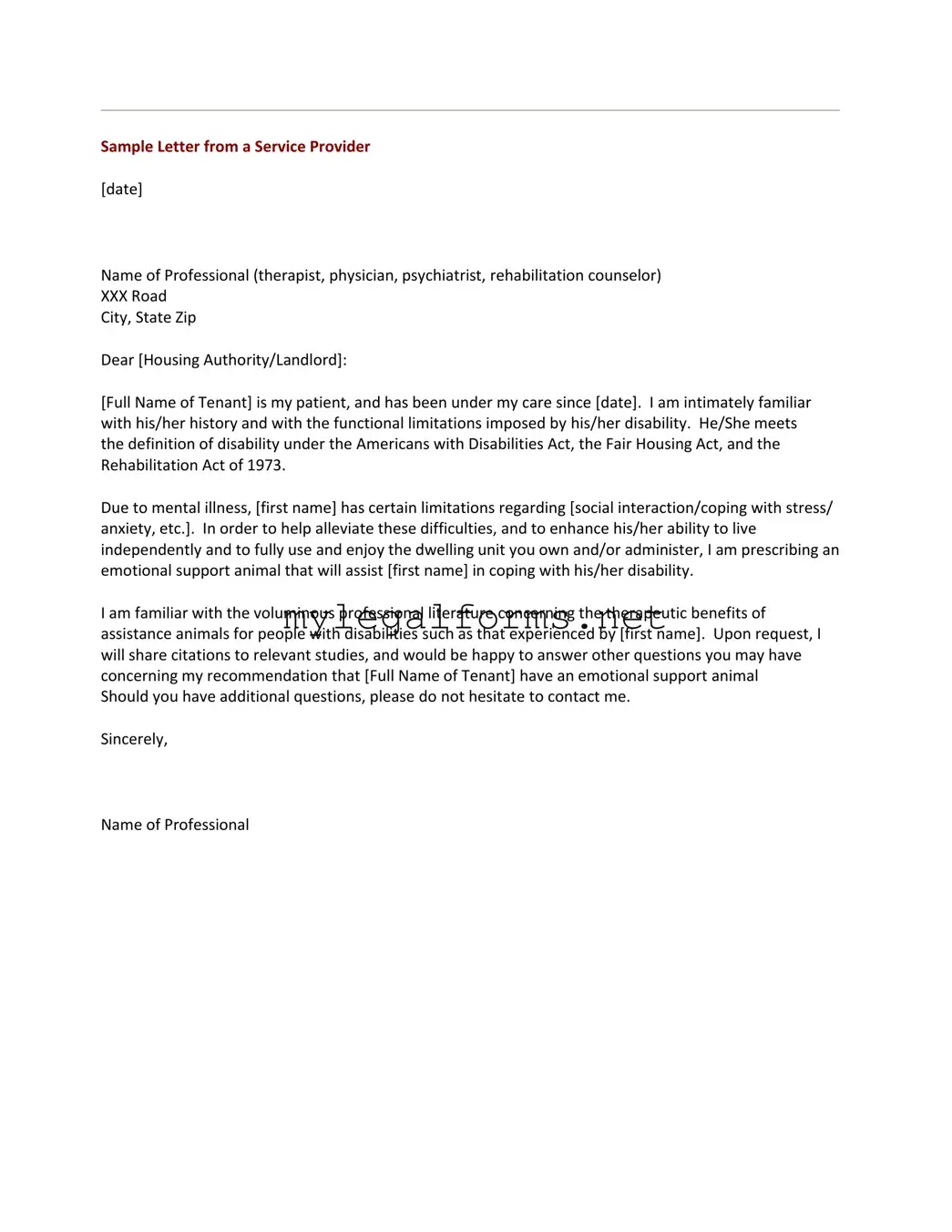Emotional Support Animal Letter Template
The Emotional Support Animal Letter is a document provided by a licensed mental health professional, affirming an individual's need for an emotional support animal due to a mental or emotional disability. This letter serves as a vital tool, granting access to housing and travel accommodations that might otherwise be restricted. Understanding the significance of this letter can empower individuals to seek the support they deserve.
Launch Emotional Support Animal Letter Editor

Emotional Support Animal Letter Template
Launch Emotional Support Animal Letter Editor

Launch Emotional Support Animal Letter Editor
or
⇓ PDF Form
Complete the form at your pace — fast
Finish your Emotional Support Animal Letter online and download the final version.
